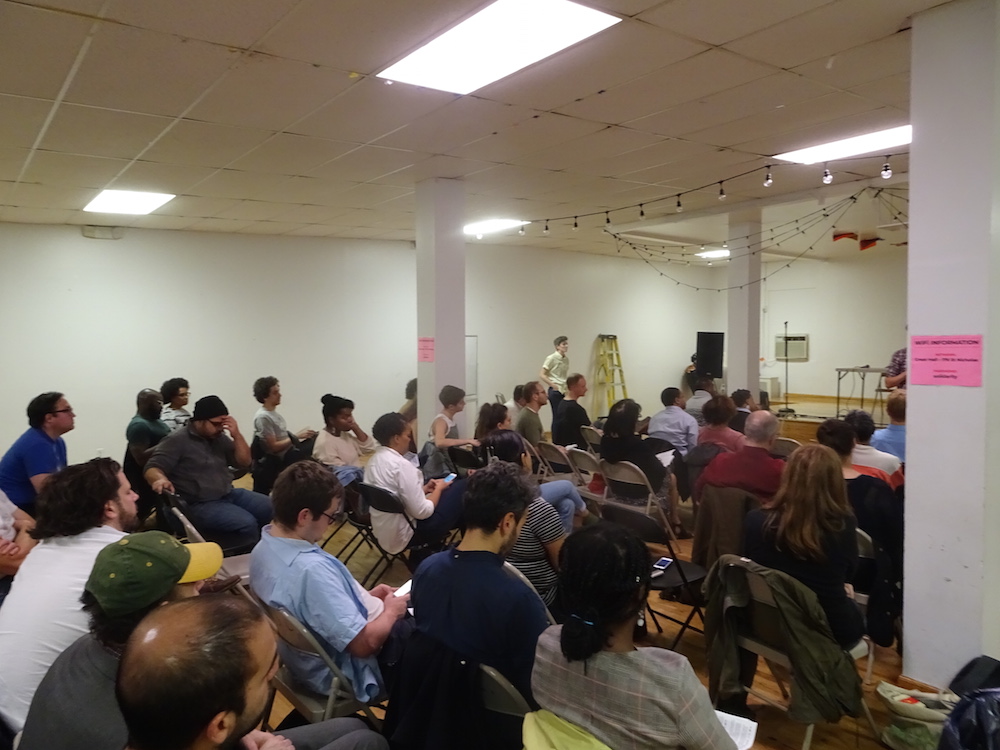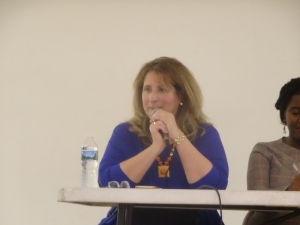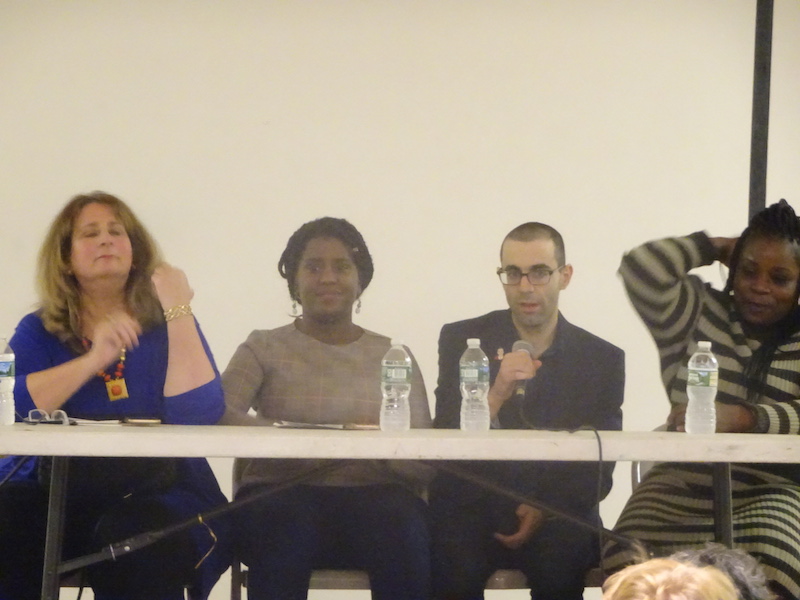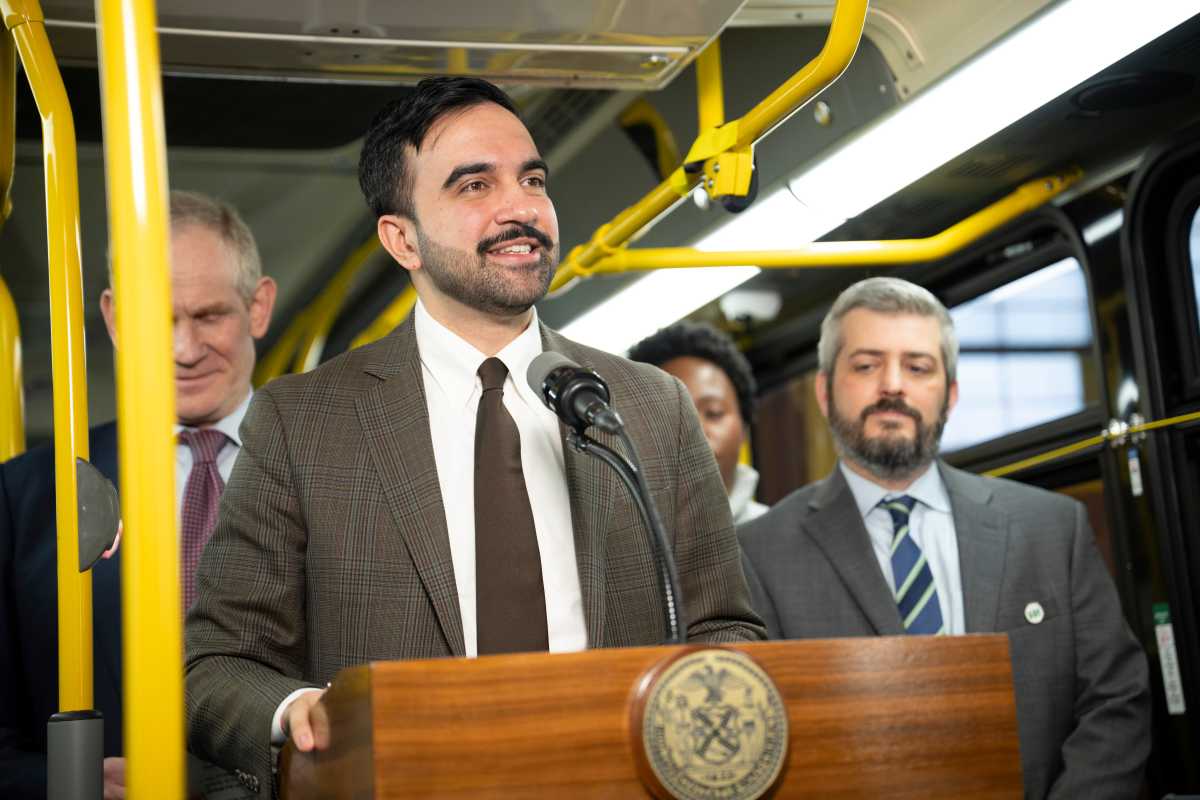Three elected Democratic District Leaders and one that narrowly lost for a district leader seat participated in a panel discussion at last night’s New Kings Democrats (NKD) political club meeting to talk about what goes into running a large-scale campaign for district leader.
District leaders is a non-paid party leadership position in each assembly district. In Brooklyn there is one male and one female Democratic District leader in every assembly district. Their main functions are to coordinate poll workers on election day, help in getting signatures on nominating petitions and often acting as conduet between local elected legislative officials and the community.
The NKD convened for their general meeting at the Mayday Space at 176 St. Nicholas Avenue in Bushwick. The second half of the meeting consisted of a panel discussion featuring male District Leader Nick Rizzo and female district leaders Olanike Alabi and Lori Citron Knipel. Additionally, Genesis Aquino, who recently lost a narrow race for district leader was on the panel.

The four of them discussed what made them decide to run for district leader, what the campaign trail was like for each of them, and the significance of the office.
Aquino said that she had been active in local politics and activism for a long time, but admitted that until recently, she wasn’t aware that the position of district leader existed.
“I didn’t know about County Committee; I didn’t know about any of that,” said Aquino. “I started doing my own research, and I realized that my district had one of the lowest levels of participation in the Brooklyn Democratic Party. We only have 33 members in the County Committee… so I decided to run, because I wanted to change that.”

The issue of the office’s relative obscurity came up again when the panel was asked about their campaign trails. Alabi said that the biggest challenge she faced during her campaign was trying to explain the significance of the district leader to voters.
“I think the toughest part was explaining to people what the position actually does, what it stands for,” said Alabi. “One of the ways we overcame that was… every time there was a race, we’d always pass out campaign literature; we’d spell out exactly what the role of the District Leader was.”
Rizzo described the position as one of “soft power” – one that endows him with the authority to influence public opinion, but which lacks the benefits and entitlements of most higher offices.

“We have to run real campaigns, we have an election, we have a title, we have power over some things,” said Rizzo. “On the other hand, we don’t have power over government resources, we don’t have any staff… it’s a little bit of an empty title, frankly, but it’s useful as a bully pulpit.”
Knipel had a more optimistic view of the title, claiming that it carries a surprising amount of power and influence – despite being, as she put it, a “non-paid, full-time job.”
“A district leader can be all-powerful, even though we don’t have a staff, and we don’t have a salary, and we don’t have an office,” said Knipel. “We hire all the election day poll workers, which is a major job.”
Knipel went on to say that the aspect of the office she values the most is the fact that it provides her with a means of staying connected with both local and national electeds.
“A major, major role of being a district leader is having a working relationship with all your elected officials – locally, nationally and beyond,” said Knipel. “And that’s something that I’ve tried to cultivate over the years… let’s stop fighting each other, and let’s start working together.”










